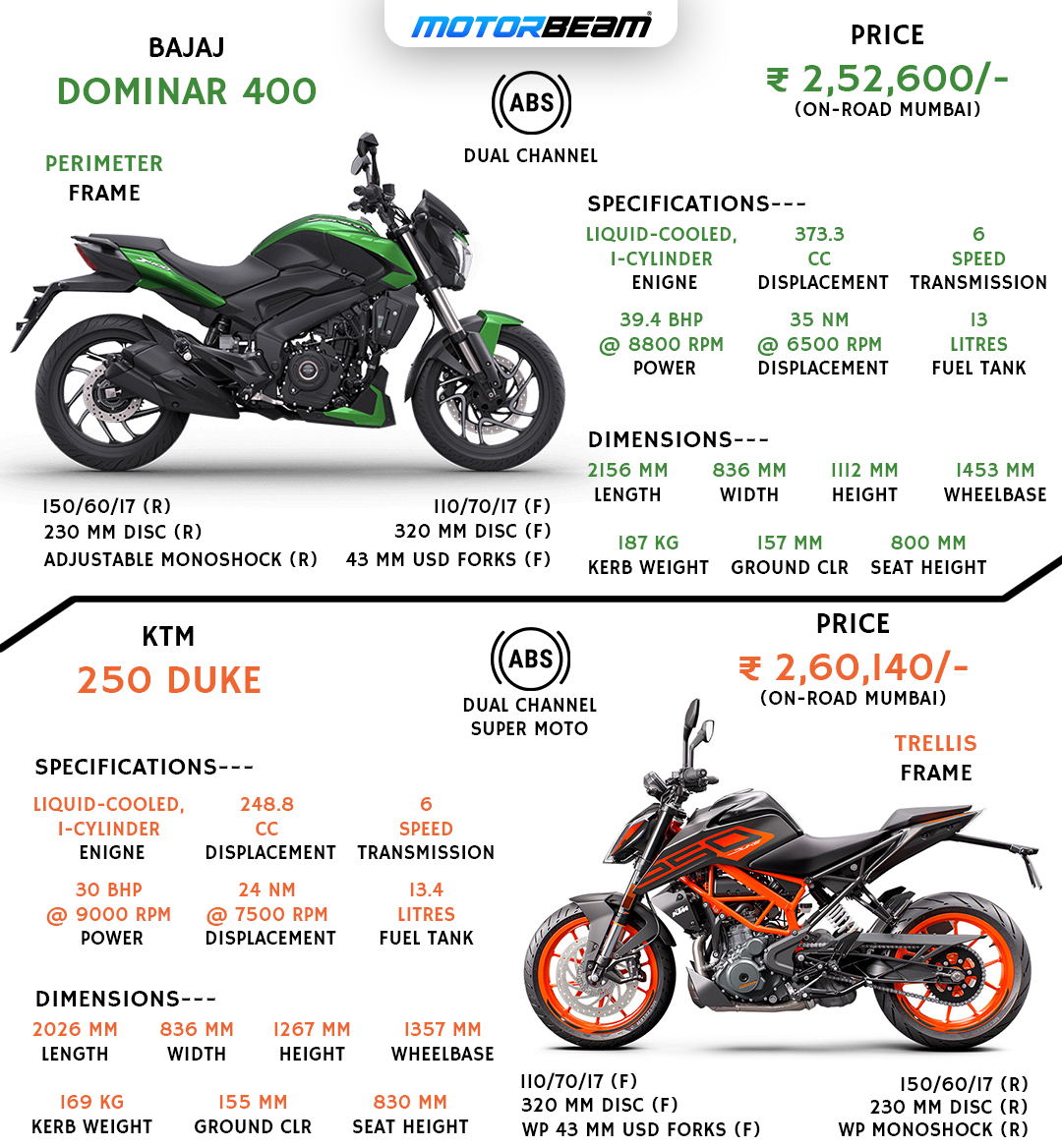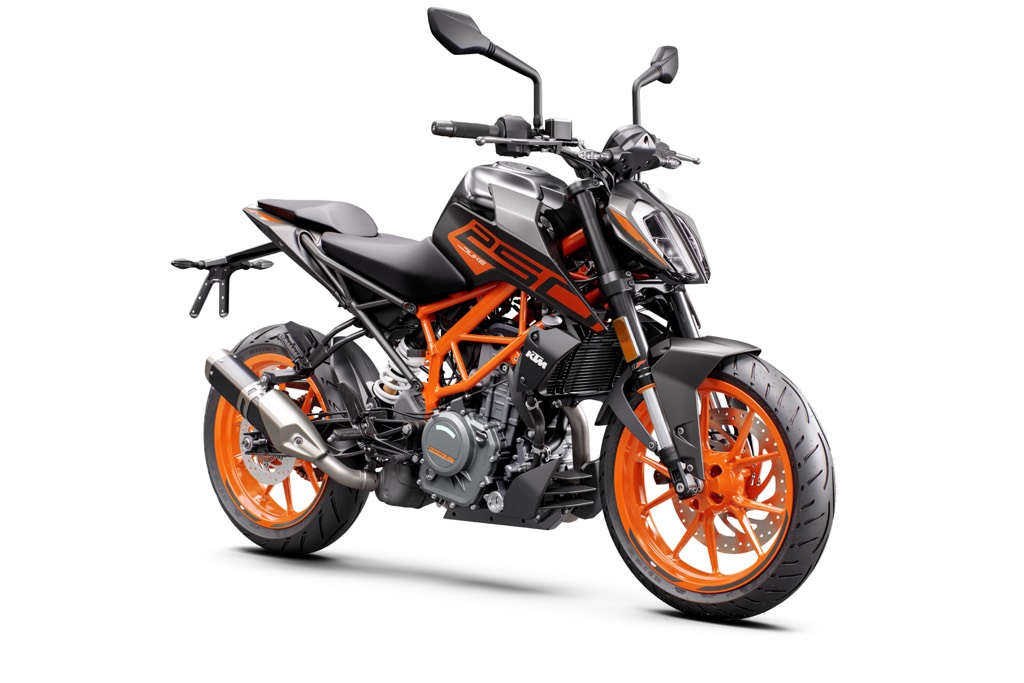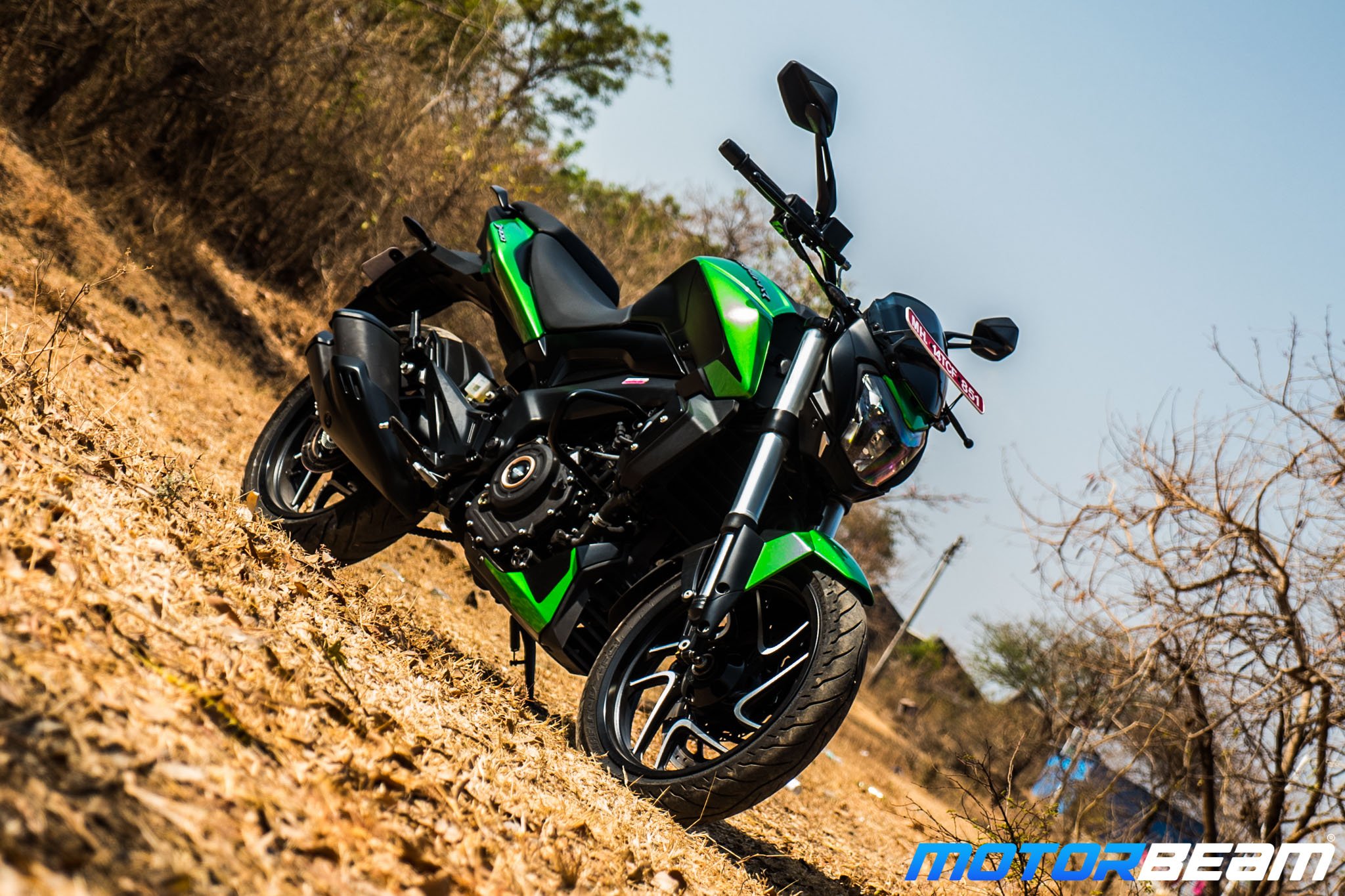Bajaj Dominar 400 vs KTM Duke 250 – Spec Comparison
Detailed spec comparison between the Bajaj Dominar 400 and the KTM Duke 250.
Detailed spec comparison between the Bajaj Dominar 400 and the KTM Duke 250.
Home » Bike News » Bajaj Dominar 400 » Bajaj Dominar 400 vs KTM Duke 250 – Spec Comparison

With the Bajaj Dominar 400 and the KTM Duke 250 in their BS6 guises, both bikes are now offered roughly at the same price, making it difficult to choose between the two. KTM recently updated the Duke 250 with a few changes inspired by its elder brother, the Duke 390. On the other hand, Bajaj has also updated the Dominar 400 with some new equipment and increasing its power figures. Let’s see how these two compete with each other in a quick spec comparison.
The entire body language of Bajaj Dominar 400 has a muscular design compared to the KTM Duke 250. At the front, the all-LED headlight with its squarish design looks apart. The mirrors on the Dominar with the metal finish gives it a unique look. The extended shrouds on the fuel tank give it a stout look. They also have a distinctive curve that flows from the tank towards the seat. The split-type seat on the Dominar gives it an able-bodied appeal. Towards the rear, it gets a split LED tail light, and below that, the LED turn indicators and the exposed 150 section rear tyre give it a beefy appeal. Both the motorcycles have a similar stance, but the Dominar having a hefty design, will have more road presence than the Duke’s. But the enthusiasts who like a sharper design will go for the Duke 250.
We can all agree that the KTM’s sleek and edgy style language knocks it out of the park in terms of design. The redesigned headlight, contoured tank, and exposed trellis frame give it an aggressive stance. The seat offered on the Duke is also a split type unit, with the pillion grab rails extending very well. Unlike the Dominar, which has a curved and flowing shape, the Duke has a more edgy and meaner appearance. It’s much more enticing now that it gets a new gloss black and matte silver paint scheme. Lastly, the standard design across all the Duke’s gives it a streetfighter aspect that’s ideal for city rides. Finally, because appearances are subjective, let us know which one you like in the comments section below.
Talking about the Dominar 400, it gets a split instrument cluster. The primary unit is the one that houses a speedometer, tachometer, clock, side-stand indicator, the riding range, average fuel consumption, etc. The secondary instrument cluster consists of two trip meters and a gear position indicator. Frankly, the secondary unit on the tank is of no use as it will be out of your line of vision while riding. The Dominar, with its update in 2019, received USD forks up front and increased power figures. However, since both the bikes get digital instrument clusters the layout is completely different.
The common data on display is a speedometer, tachometer, twin trip meters, gear position indicator, fuel gauge, an average fuel consumption indication, and the list goes on. However, the KTM’s previous instrument console which had a squarish layout with its orange backlight is still on display. The Duke gets an edge over the Dominar by having WP Apex suspension for the front USD forks and the rear mono-shock absorber. Although the Duke has a lot of features, it would have been great if it was provided with a colourful TFT like the Duke 390 or even a bigger LCD like the 250 adventure. However, KTM has offered a full LED headlight unit on the Duke 250 similar to its elder sibling.
The Dominar 400 is focused on long-distance riding, it has a somewhat cruiser-based riding posture than the Duke 250. The footpegs are also centre-set for increased riding comfort. In addition, the seat height of 800 mm is suitable for most people; on the other hand, the Duke 250’s seat height of 823 mm may be intimidating for some. However, the Dominar misses on the adjustable brake and clutch levers which are present on the Duke 250. On the contrary, the mirrors on the Dominar 400 provide a better view of what’s behind than the Duke 250.
Both bikes have a street-naked stance. However, the Duke 250 has an aggressive and engaging riding posture for spirited riding. The footpegs are a bit rear-set, and you sit a bit leaned-in towards the handlebar. This provides a more engaged and controlled riding position. The Duke 250 has a wide seat, but the Dominar provides a better and well-cushioned seating than the Duke. The seat positioning on the Duke may be cramped up for people above 6 feet of height, considering its compact riding posture compared to the Dominar.
Powering the Dominar is a 373.3cc motor producing 39.4 BHP at 8800 RPM and 35 Nm of torque at 6500 RPM. The Dominar here gets the advantage of having an extra oomph resulting in more power and torque. The gearbox offered is a 6-speed unit combined with a slip and assist clutch for smooth gear shifts. It is also the better sounding engine of the two, thanks to its dual-barrel exhaust producing a throaty and a grunty sound. With its 13-litre fuel tank, the Dominar returns about 28 km/l, which leaves you with a 364 kms of range (depending on your riding style).
The engine department is where the comparison feels unjust, with the Duke having a 248.8cc engine compared to the 373.3cc of the Dominar. The Duke 250 churns out 29.6 BHP at 9000 RPM and 24 Nm of torque at 7500 RPM. While it also offers a 6-speed gearbox but lacks a slipper clutch, but, the shifts are quick and precise. The Duke ultimately provides a better range than the Dominar, having a 13.4-litre fuel tank and a smaller engine. It returns 32 km/l, which translates to a range of 420 kms (depending on your riding style).
The Dominar 400, weighing 187 kgs, makes for a strenuous handler for manoeuvring through the city traffic compared to the Duke. But on the contrary, this makes for a stable highway cruiser. Both the Dominar 400 and the Duke 250 get the exact same tyres. But even after this, the Dominar hesitates to put itself through corners considering its heavyweight. The Duke, on the other hand, leans and corners like a maniac while holding the line really well too. All of this is possible as the wheelbase of the Duke is at 1357 mm, compared to the Dominar’s 1453 mm. The chassis is also quite different on both as the Dominar uses a perimeter frame while the Duke comes equipped with a split-trellis frame.
While the Dominar is a highway machine, the Duke is a lot more fun in the city. Similarly, both the bikes offer radially mounted brake callipers with dual-channel ABS as standard. They also have the same disc brake set-up of a 320 mm disc up front and a 220 mm at the rear. The Duke weighs 169 kgs, which is significantly less than the Dominar 400’s 187 kgs. Duke also comes with a supermoto mode that disables the rear ABS so that you may enjoy some slides. Moreover, the WP Apex suspension system is a premium unit on the Duke, which outperforms Dominar’s conventional USD forks.
At Rs. 2,60,140/- (on-road, Mumbai), the KTM Duke 250 is a bit expensive than the Bajaj Dominar 400 at Rs. 2,52,600/- (on-road, Mumbai). But you get what you pay for on the Duke 250 with top-notch equipment, switchable ABS, and a sharp and edgy design. If you need a sharp and quick handling machine, the Duke could be a better choice. Whereas the Dominar 400 seems to be the VFM bike of the two, offering similar equipment at a lower price while being a proper mile-muncher.


